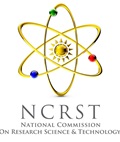
.

Republic of Namibia

.
Namibia, a country in southwest Africa, is distinguished by the Namibia Desert along its Atlantic Ocean coast. The country is home to diverse wildlife, including a significant cheetah population. The capital, Windhoek, and coastal town Swakopmund contain German colonial-era buildings such as Windhoek's Christuskirche, built in 1907. In the north, Etosha National Park’s salt pan draws game including rhinos and giraffes.Read more

University of Namibia (UNAM)
The University of Namibia (UNAM), is the country’s premier institution of tertiary education. It consists of four faculties and 12 campuses country-wide. This outreach makes UNAM a truly community-based institution, renowned for its academic excellence, outstanding research, and community development projects. It is a diverse institution with a student population from 41 countries around the world. Read more

International University of Management (IUM)
Established in 1994 as the Institute of Higher Education, by Hon Prof. David Richard Namwandi, the university was officially launched as the first private university in Namibia on 26th October 2002 by the then state president of the Republic of Namibia, His Excellency Dr. Sam Shafiishuna Nujoma. From humble beginnings with only one student, IUM has since grown into one of the top universities in Namibia, Read more

Namibia University of Science and Technology
NUST is the first Namibian higher education institution to have established a dedicated Quality Assurance Unit; its programmes are accredited by, among others, the National Council for Higher Education (NCHE) and the Namibia Qualifications Authority (NQA). The University enjoys a cherished partnership with industry, public sector and civic society through various initiatives such as curriculum advisory boards, work integrated learning and joint research.Read more

National Commission on Research, Science and Technology
NCRST is Namibia’s national agency for research, science, technology and innovation; created through the Research Science and Technology Act of 2004. The NCRST’s mission is: To establish and strengthen a national system that promotes, develops and informs Research, Science, Technology and Innovation through effective coordination to realize a knowledge-based society. The NCRST’s vision is: To be a leading catalyst of evidence-based transformation towards a sustainable and inclusive society. Read More
